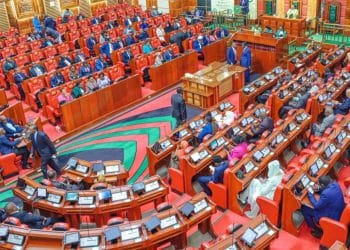A recent call for an economic boycott in Eastleigh, Kenya, has started an important discussion about unity among different ethnic groups in the country.
The boycott aims to isolate businesses in Eastleigh, which is mostly inhabited by people from the Somali community. This has raised worries about unfair targeting of a specific ethnic group and could create more division among people.
The discussion focuses on how this boycott could affect unity in the country, especially since Kenya has a long history of ethnic issues, especially during elections. In the past, protests and political actions have often made these tensions worse, and this situation seems to follow the same pattern.
Many see the call for a boycott as an effort to punish or push away a particular ethnic group, which raises questions about how Kenya can move past its tribal politics.
Young people in Kenya are usually very active in political changes. Recently, there have been protests by “Gen Z” against higher taxes and poor governance, which try to focus on issues like corruption rather than ethnic differences.
However, the boycott in Eastleigh may change how these young activists deal with ethnic issues. It is important to talk about whether they help bring people together or create more divisions.
Public reactions to the boycott call are mixed. Some people support it as a way to protest, while others worry it could lead to more ethnic conflict.
Social media platforms like X are buzzing with different opinions. Some people are calling for unity, while others express anger or frustration over perceived injustices.
This situation has started new conversations about national unity and how Kenya can become more inclusive. There are calls for open talks and for political leaders to address issues without using ethnic identities for their benefit.
The incident also makes people rethink how economic actions can be used in politics and the possible negative effects they could have on relations between different ethnic groups.
URGENT CALL FOR ECONOMIC BOYCOTT IN EASTLEIGH KENYA: pic.twitter.com/0AyT0NG9yR
— Francis Gaitho (@FGaitho237) January 16, 2025



















